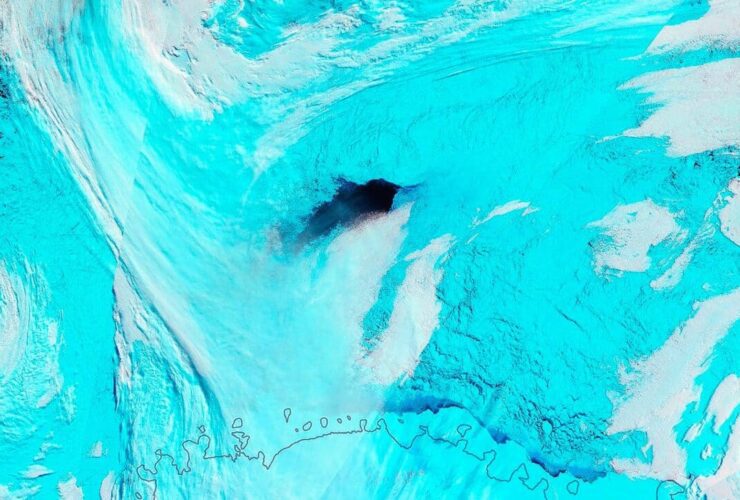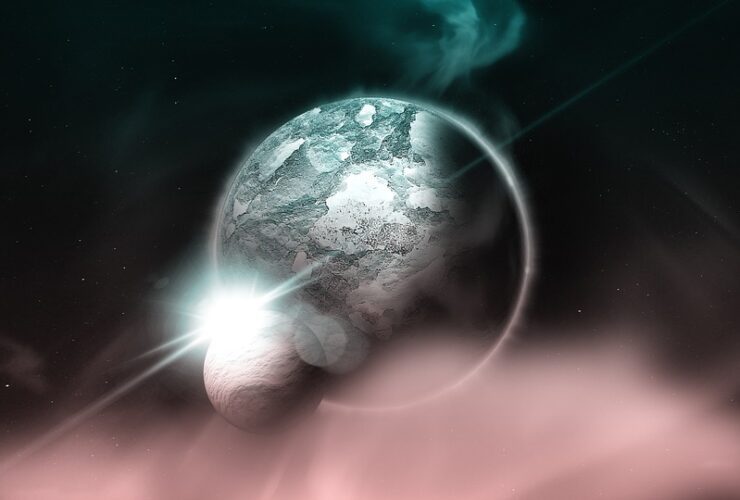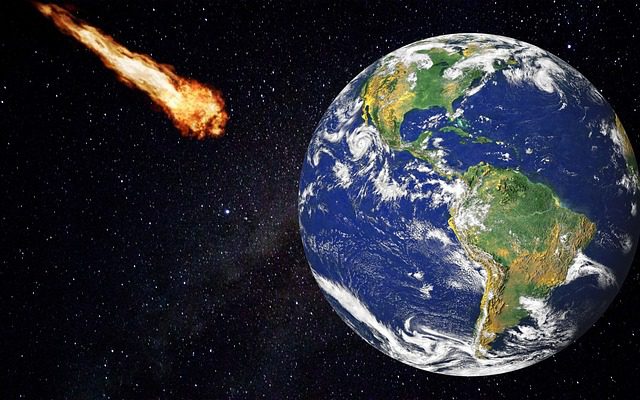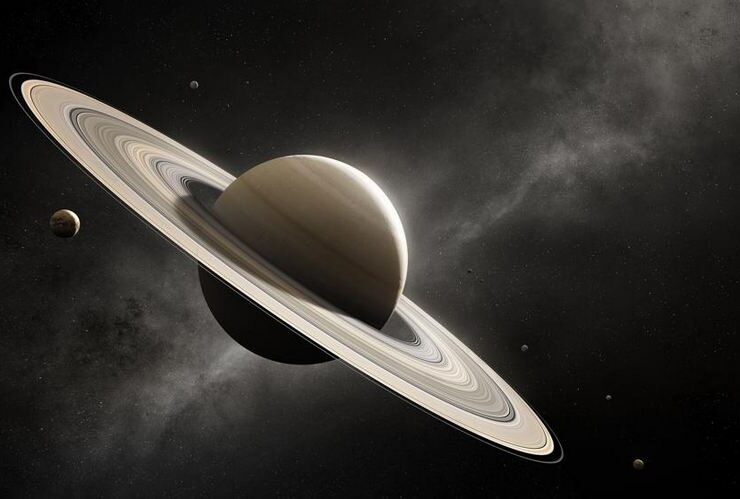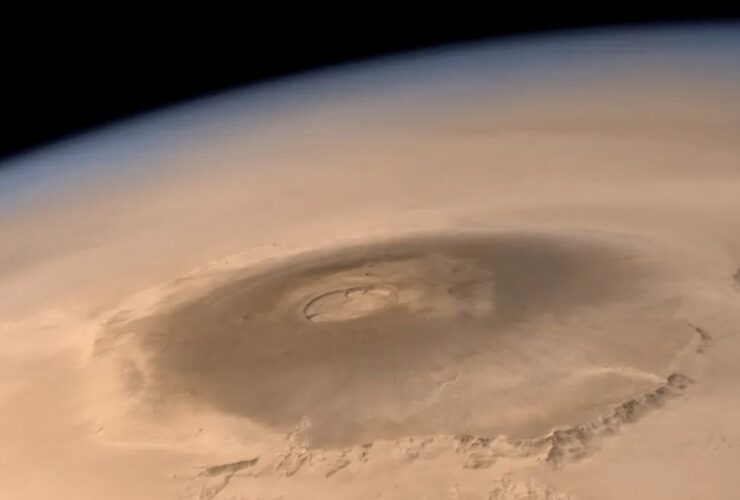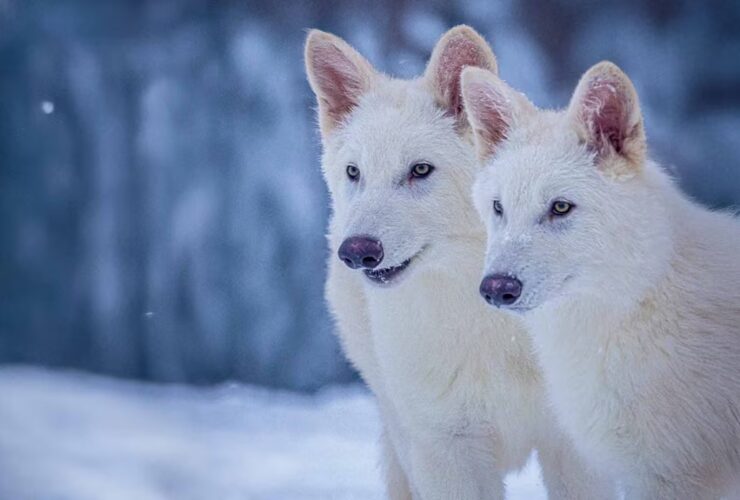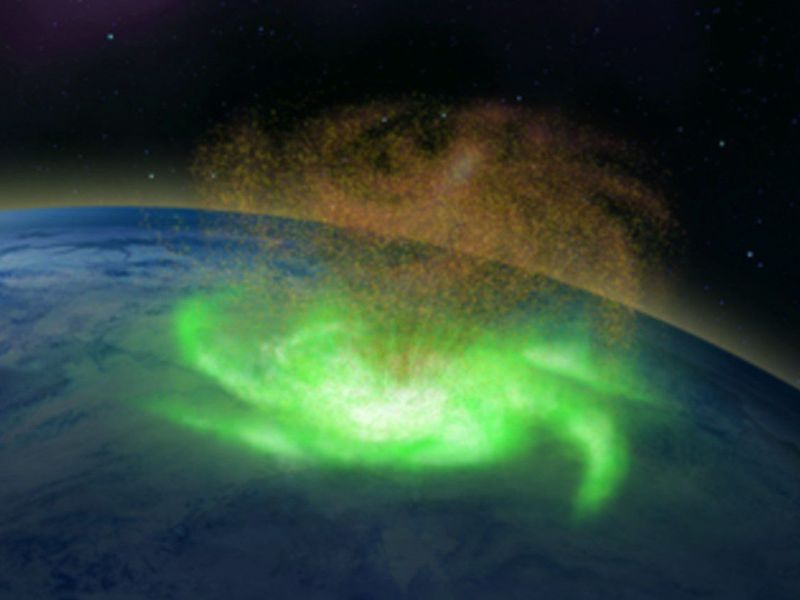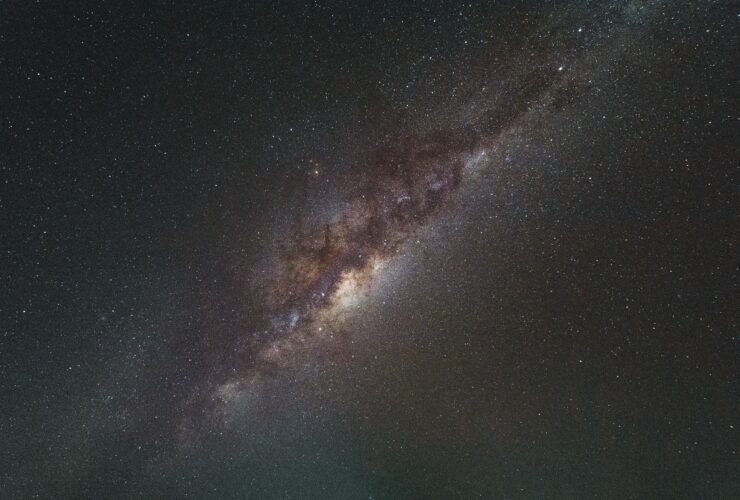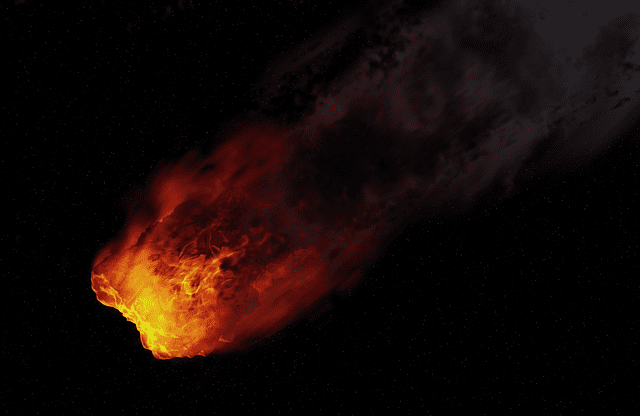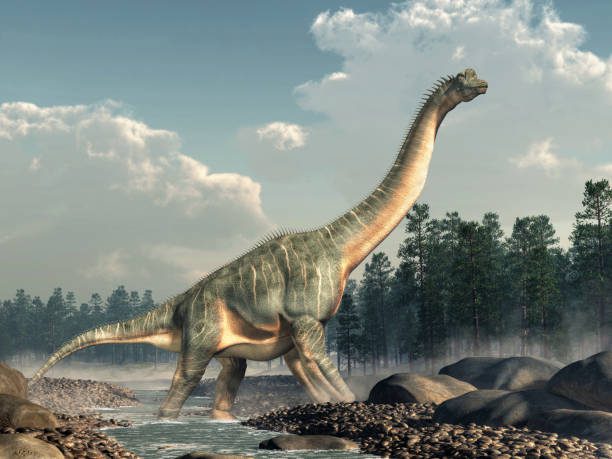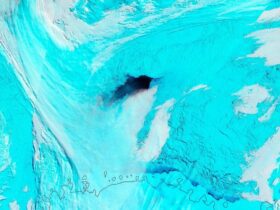A hole the size of Switzerland just opened in Antarctic sea ice. It’s not clickbait. It’s a climate event with global implications—and scientists are scrambling to decode the warning signs. If you’re tracking ocean health, polar shifts, or future weather ...
Is This Rock From Mars… or Somewhere Else Entirely?NASA’s Perseverance rover just logged its most controversial find yet — a jet-black rock with eerie, eye socket-like indentations that researchers have dubbed Skull Hill. It stands in stark contrast to its ...
A potential biosignature has been spotted on an exoplanet 124 light-years from Earth.Not clickbait—this is real data from the James Webb Space Telescope. A mysterious planet called K2-18b may be emitting the chemical fingerprints of life, and the molecules in ...
A prehistoric bombshell is surfacing in Brazil’s Paraíba state—one that could upend everything we thought we knew about early human cognition and deep time.Right now, archaeologists are staring down a mystery: ancient petroglyphs carved by humans nearly 9,000 years ago—positioned ...
The majesty of God’s creation is once again defying our current understanding of the Cosmos. New research reveals that newborn stars can emerge even in red star-forming galaxies, meaning galaxies considered technically “dead.” If it’s true, it means that life ...
The Spring of 2025 begins in a great way for stargazers, as the Lyrids and Eta Aquariid meteor showers will soon be dominating the night sky. The celestial show will begin in mid-April and last until the end of May. ...
We all know that there’s an ongoing single-use plastic crisis that the world is facing, and finally, scientists might have the key to the problem. They have invented a new material by exploiting plants that could act as the perfect ...
Astronomers surely felt a few chills down their spine when they first discovered the 2024 YR4 asteroid last year in December, as this space rock clearly is no space dust. It’s the size of an imposing building, as it measures ...
Saturn’s icy moon has all the ingredients for life—just not enough to make more than a cosmic snack Titan’s got lakes. It’s got a thick, nitrogen-rich atmosphere. It’s got organic chemistry happening all over the place. So, why hasn’t it ...
Hellas Planitia, Kuiper Belt water drops, and boiling blood—here’s how close we actually are For decades, terraforming Mars has been the stuff of sci-fi daydreams and Elon Musk soundbites. But a new 2025 study by Dr. Leszek Czechowski from the ...
New 2025 research suggests Earth’s past—and future—may look a lot greener from space than we thought We’re used to calling Earth the “pale blue dot.” But new research published in Nature (April 2025) by a Japanese-led team reveals that our ...
Yes, seriously. Dire wolves—the oversized, bone-crushing beasts of Ice Age lore and Game of Thrones fame—are now walking the Earth again. After 10,000 years of extinction, U.S.-based biotech firm Colossal Biosciences has announced the birth of three living dire wolf ...
Is the Caribbean Entering a Superstorm Era? If you’re a climate resilience planner, eco-tourism operator, or Belize coastal investor, this is the data that changes everything. A 30-meter sediment core drilled from Belize’s famous Great Blue Hole in 2022 has ...
Forget everything you learned in history class—seriously. A shocking new claim says the Giza pyramids might not just be 4,500 years old… but closer to 38,000. Oh, and there’s allegedly a massive underground city sitting beneath them. If this turns ...
Two ancient stars are quietly orbiting each other in our galactic backyard—until one day, they won’t. Astronomers just confirmed the first known supermassive white dwarf binary system destined to detonate in a Type Ia supernova, and when it finally goes ...
A Dusty Breakthrough That Could Power Future Space Colonies Astronauts may no longer need to carry solar panels into space. Instead, they could build them directly on the Moon—using nothing more than dust and sunlight. Researchers from the University of ...
Scientists Just Dug Up a Real-Life Prehistoric Edward Scissorhands—But It Was a Vegan Move over T. rex, there’s a new clawed weirdo in town—and this one didn’t bite, it snacked on leaves. Introducing Duonychus tsogtbaatari, a two-fingered dinosaur species just ...
60 meters wide. A 3.8% chance of a lunar strike. Billions in potential satellite damage. Here’s what NASA isn’t putting on the headlines. hat’s Really Going On With Asteroid 2024 YR4? Forget Hollywood-style doomsday fantasies. This one’s real—and it’s in ...
Five years ago, Elon Musk casually tweeted, “Obviously, aliens built the pyramids,” and the internet exploded with debates, laughter, and outrage. Now, groundbreaking new discoveries beneath the Pyramids of Giza are fueling speculation: could Musk actually be onto something? New ...
On March 24, 2025, Europeans looked up and saw a glowing, blue spiral tearing across the night sky.Theories exploded within minutes: alien signal? Secret weapon? Glitch in the matrix? Here’s the truth—and why it’s not just spectacular, but strategically significant. ...
A Shocking Discovery Beneath the Sand What if everything we thought we knew about the Pyramids of Giza was wrong? A team of scientists from Italy and Scotland just dropped a bombshell: beneath the iconic Khafre Pyramid may lie an ...
Ancient Secrets Buried in Plain SightNearly 3,300 years after his death, Tutankhamun is still making headlines—and this time, it’s not because of gold masks or cursed tombs. Archaeologists now believe a set of humble wooden staffs and clay trays buried ...
A 1.4-Million-Year-Old Surprise That Rewrites Human Evolution Imagine standing face-to-face with the oldest known human in Western Europe. Well, archaeologists in Spain just did—sort of. Meet “Pink,” a 1.4-million-year-old fossil unearthed in the Sima del Elefante cave in the Atapuerca ...
A 170-Million-Year-Old Fossil from the Isle of Skye Discovery Revisited In 1973, near Elgol on Scotland’s Isle of Skye, a fossil was unearthed that would later be recognized as the nation’s earliest recorded dinosaur. For decades, this specimen remained uncollected, ...
Africa is literally breaking apart—at a speed that has shocked scientists. A vast tectonic rift stretching from Ethiopia to Mozambique is widening, and new research suggests that a massive ocean could form much sooner than we thought. Geologists once believed ...

